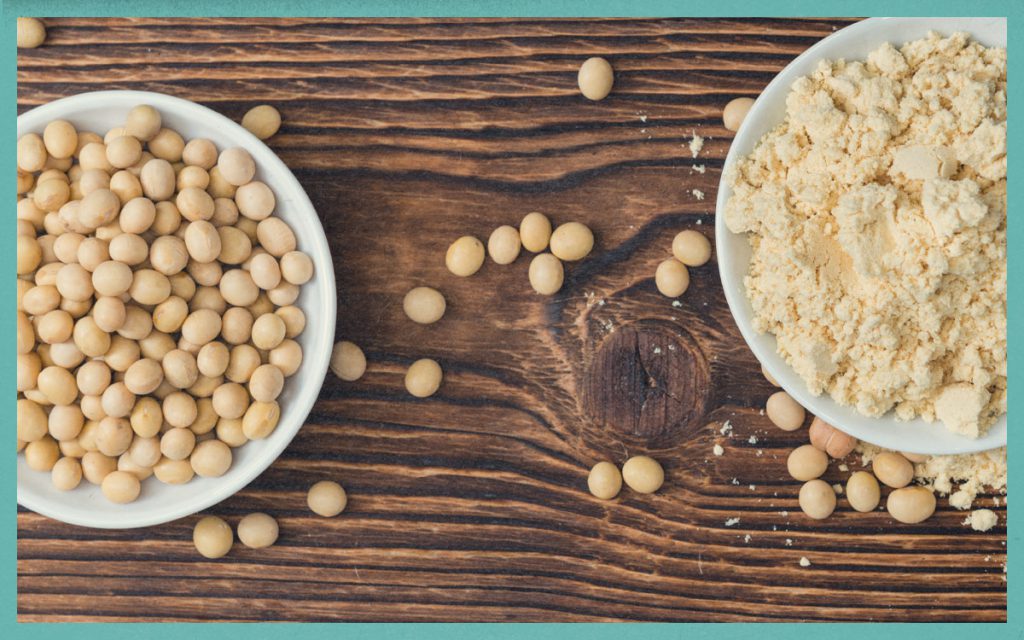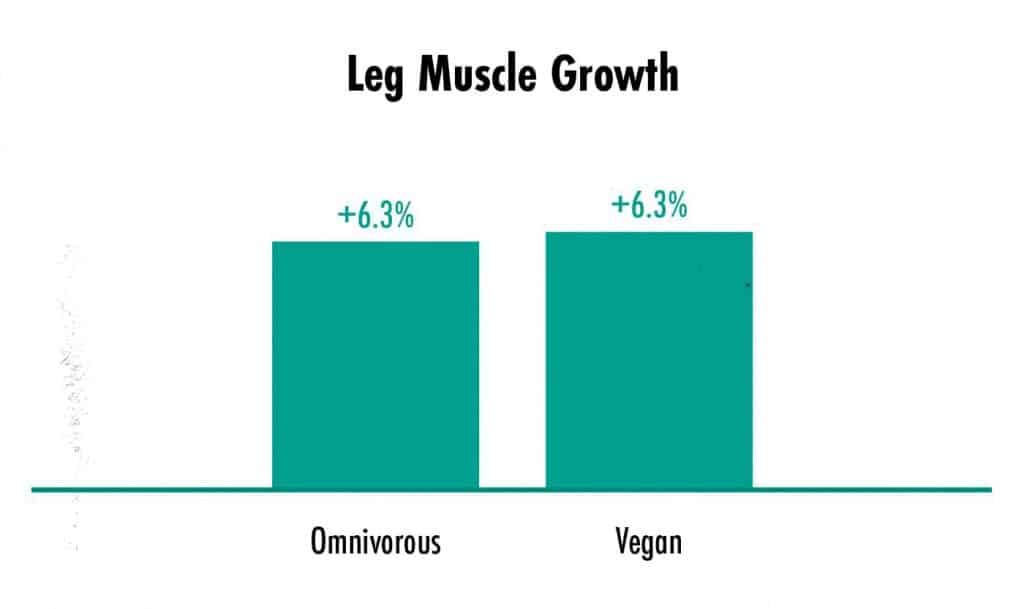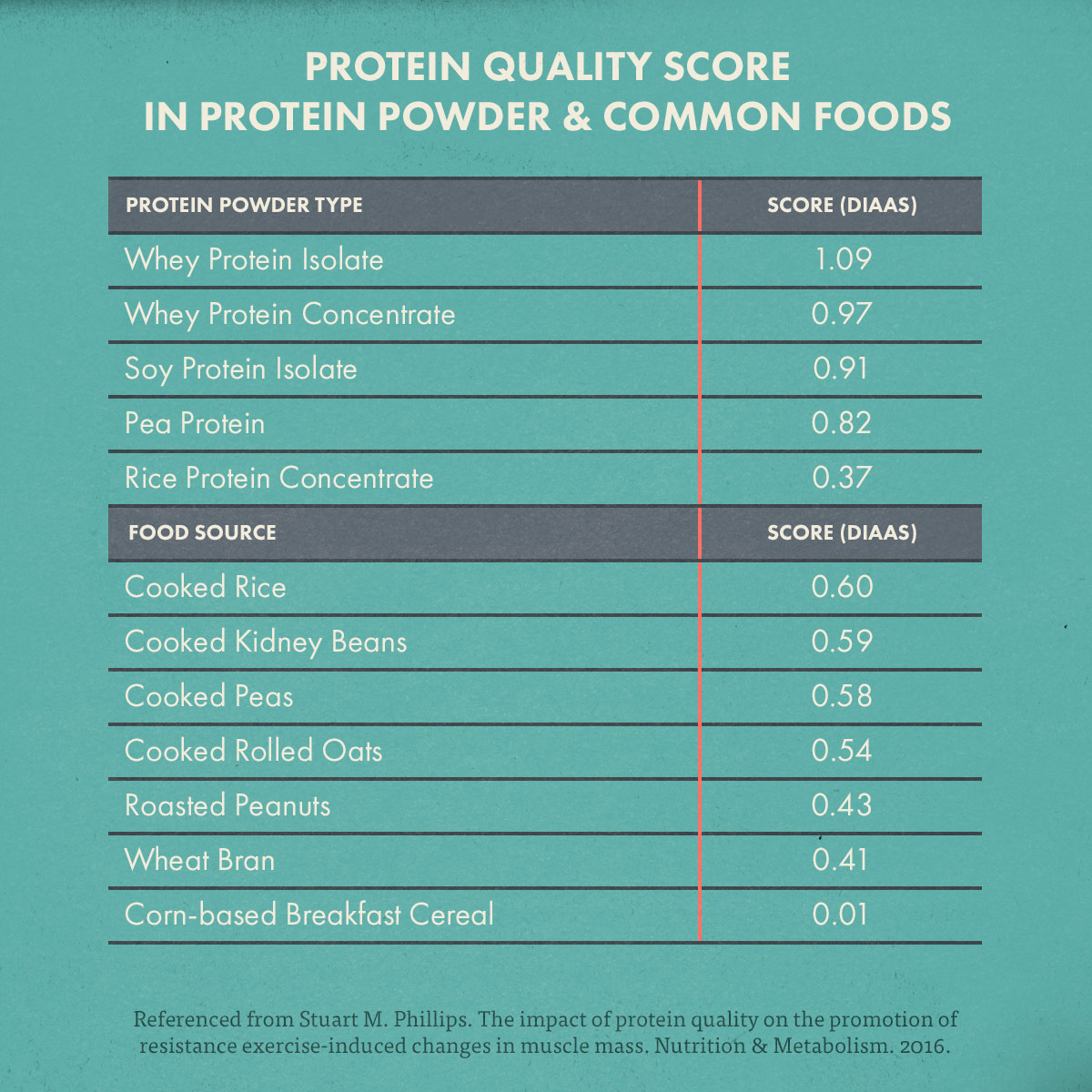
Best Vegan & Vegetarian Protein Sources
If you eat a proper plant-based diet, you can build muscle at full speed. You won’t be at any disadvantage at all. Plant-based diets, like vegan and vegetarian diets, tend to be high in nutritious starchy carbs, and starchy carbs are amazing for muscle growth. The thing is, you also need to make sure that you’re eating enough protein. And getting enough protein can be hard. So let’s go over the best plant-based protein sources and strategies.
Are Plant-Based Diets Good For Building Muscle?
Most fad diets aren’t very good for building muscle. Low-carb diets have too few carbs to maximize workout performance and muscle growth. Keto has way too few carbs. Intermittent fasting limits muscle growth to just the periods of time when we’re in a fed state. Most of these diets make it harder to gain muscle and strength.
But not plant-based diets. Plant-based diets are good for building muscle. You get plenty of carbs. You can eat all day long. There are plenty of good protein sources. Lots of vitamins and minerals and fibre. Plant-based diets have everything you need to build muscle. You can maximize your rate of muscle growth.
We have a full article about how to bulk on a plant-based diet. In this article, we’ll go over one of the main struggles people run into—eating enough protein. This is a struggle everyone has, but for vegans, it can take a bit of extra strategizing. So let’s do that.
The “Problem” with Plant-Based Proteins
Most people don’t eat enough protein to maximize their rate of muscle growth. This is true for everyone, omnivore, vegetarian, or vegan. But because plant-based foods don’t tend to be as rich in protein as animal-based foods, it’s especially important to double-check that you’re getting enough. The good news is, there are plenty of great plant-based protein sources, including soy, legumes, peas, grains, seeds, and nuts. You just need to make sure you’re eating enough of them.
The other thing to keep in mind is that plant-based protein sources aren’t only protein. In fact, many of them have proportionally more carbs or fat than protein.
For example, consider almonds. They are a source of protein, yes, but they’re also mostly fat. Only 15% of the calories in the almond come from protein. If you’re trying to get more than 15% of your calories from protein, then almonds actually set you behind. But if we have both almonds (fat + protein) and beans (carbs + protein), we can get all the protein we need without overdoing it with the fats or carbs. And, of course, you can use soy and protein powders, which are often quite a bit higher in protein.
Finally, plant-based protein sources aren’t “complete” protein sources. They don’t have all of the amino acids, just some of them. And that’s okay. Different plant-based protein sources have different amino acids, so if you mix a few together, you’ll get a balanced protein intake. Most plant-based protein powders do this by default, making it super easy. So no problem. But again, it helps to know what you’re doing.
Not Eating Enough Protein Slows Muscle Growth
A 2013 study by Volek et al. measured muscle and strength gains after 9 months of hypertrophy training (96 workouts). The only difference between the groups was whether they were given whey protein, soy protein, or a carb supplement. At the end of that 9-month period, the people taking whey protein had gained 83% more muscle than those taking soy protein. The people who got the carb supplement did even worse. This sounds like a problem, right? It depends.

A 2021 study by Hevia-Larraín et al. compared vegan and omnivore diets for gaining muscle size and strength. This time, though, instead of giving out protein powder, they instructed the participants to eat enough protein. The difference was, some of the participants were instructed to eat a plant-based diet, the others were instructed to eat an omnivorous diet. Perhaps most importantly of all, they made sure all of the participants were eating at least 0.7 grams of protein per pound body weight per day. Because overall protein intake was sufficient, both groups gained the same amount of muscle and strength. (The vegan group gained a fraction of a pound more muscle, but the results didn’t reach statistical significance.)
So the trick is to make sure that you’re eating enough protein overall. Otherwise, you may not build muscle nearly as fast.
How Much Plant-Based Protein Should You Eat?
For general health, moderate protein intake can be ok, especially if you aren’t very active. But muscle is constructed out of protein (as are your nails and hair). So if you want to gain muscle and strength, you’ll benefit from eating more protein.
Some research shows that we can maximize our rate of muscle growth by eating 0.7–0.8 grams of protein per pound of body weight per day. Other research shows that eating a full gram of protein per pound body weight works even better. We normally round up to that full gram. That takes into account that there might be some guesstimating when calculating your daily protein intake or serving sizes, and it accounts for your protein quality not being totally perfect.
So, aim to get at least 0.7 grams of protein per day. That’s your bare minimum. But if you want to ensure you’re building muscle at max speed, bump that up to a full gram. That’s what we do with our clients.
Protein Quality (And Why It Matters)
If protein is hard to digest, it’s harder for your body to break it down into amino acids. If it doesn’t digest well, your body can’t use as much of it. On top of that, not all plant-based protein sources have all the essential amino acids. So “protein quality” is how easily a protein can be digested into the amino acids that we need.
For example, check out these protein quality scores of common protein powders and foods from Dr. Stuart Philips’ meta-analysis of all the available research (study, study):

This means that to get the same score as you would from soy isolate, you’d need to eat around 10% more pea protein. No problem. Both of these are great sources of protein. But if you had rice protein powder, you’d have to eat more than twice as much! That’s why it can help to intentionally have some high-quality protein powder sources in your diet, and to include a variety of sources. Soy protein isolate, soy milk, pea protein concentrate, protein powder blends (rice + pea), and so on. They give you some extra insurance.
The Best Vegan Protein Sources
The ideal vegan diet includes a variety of protein sources. One protein source might be deficient in Lysine, another deficient in Valine. But so long as you aren’t relying on just one or the other, everything is fine. Still, this can be a bit tricky, and it’s why getting protein powder blends, like pea and pumpkin seed protein powder, can really come in handy.
Vegan foods that have a lot of protein per calorie:
- Soy milk
- Tempeh
- Tofu
- Seitan
- Cooked spinach
- Textured Vegetable Protein
- Veggie Burgers
- Beans
- Chickpeas
- Lentils
- Peanuts
- Pumpkin seeds
- Nuts in general
- Seeds in general
So think of having a lentil stew with some cooked spinach in it. Maybe with a glass of soy milk on the side. That would get you all of the protein you need, and you’d be getting it from three different sources.
If you’re still having trouble hitting your daily protein goals, remember that there are lots of great plant-based protein powder blends that can make this a lot easier. For example, blending up a fruit smoothie in the morning with a scoop of rice/pea protein powder mixed in.
The Best Vegetarian Protein Sources
Vegetarian foods that have a lot of protein per calorie:
- Greek yogurt
- Cottage cheese
- Whey protein
- Egg whites
- Low-fat cheese
- Kefir
If you’re having dairy, you may want to investigate unheated or fermented dairy for the best digestion.
Summary
Those eating vegetarian and vegan diets can still build muscle perfectly well. You just need to make sure you’re eating a variety of different protein sources and that you’re eating enough protein overall.
- Aim to eat at least 0.7 grams of protein per pound bodyweight per day. If you want to make sure that you’re fully maximizing your rate of muscle growth, you might want to bump that up to a full gram of protein per pound bodyweight per day. But that’s up to you. It’s unclear if it will make a difference.
- Feel free to use plant-based protein powders. Supplementing with protein powders can make hitting your protein goals a lot easier. Choosing protein powder blends, like pea/pumpkin seed, is best.
- Try to eat some protein with every meal. In an ideal world, you’d get at least 20 grams of protein in every meal, and you’d eat at least 3–4 meals per day. For more, we have a full article on how to eat a good bulking diet.
If you liked this article, you’d love our muscle-building newsletter. We’ll keep you up to date on all the latest muscle-building information for women. Or, if you want us to walk you through the process of gaining muscle and strength, including teaching you the exercises, giving you a structured 5-month workout program, a complete diet guide, a recipe book, and online coaching/customization, check out our Bony to Bombshell Program.
Shane Duquette is the co-founder of Outlift, Bony to Beastly, and Bony to Bombshell, and has a degree in design from York University in Toronto, Canada. He's a certified conditioning coach with over fifteen years of experience helping over 15,000 men and women get stronger, leaner, fitter, and healthier.

